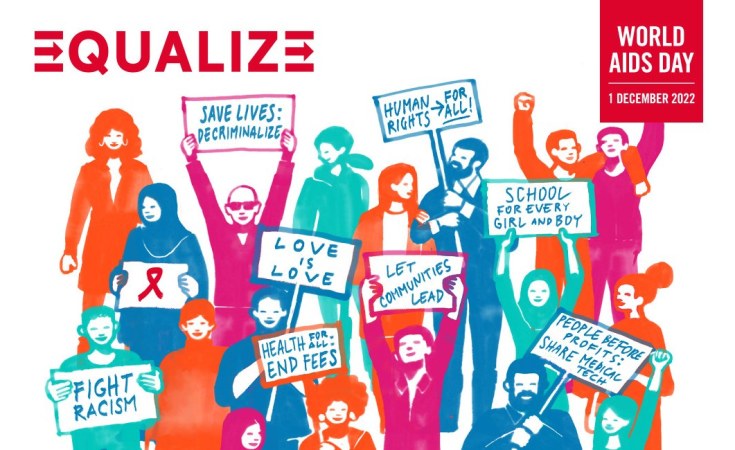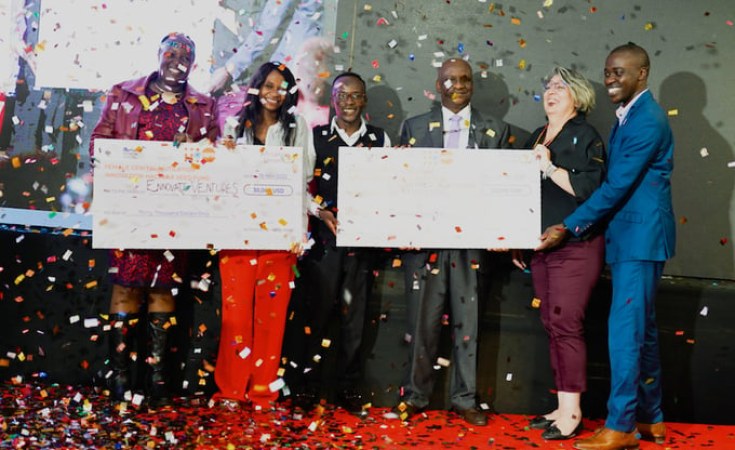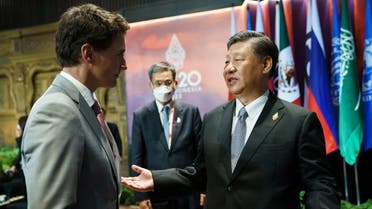November 30, 2022 By Alyssa Kumler

“COVID-19 and the backlash against women’s sexual and reproductive health and rights are further diminishing the outlook for gender equality,” states a recent report on the current progress toward gender equality across all 17 Sustainable Development Goals (SDGs) from the United Nations Entity for Gender Equality and the Empowerment of Women (UN Women) and the Department of Economic and Social Affairs. Yet the new report also zeroes in on another factor that is diminish progress on gender equality: violence. The authors observe that “violence against women remains high, global health, climate and humanitarian crises have further increased risks of violence, especially for the most vulnerable women and girls, and women feel more unsafe than they did before the pandemic.”
So it is fitting that the 16 Days of Activism against Gender-Based Violence (GBV)—a global campaign to raise awareness about and work to eliminate violence against women and girls—is currently underway. The recent report makes clear the connections between GBV and gender inequality, and also calls attention to what still needs to be done to reach the SDGs by 2030 by looking beyond SDG 5 (Gender Equality) to how this concept is essential across each SDG. The report also clearly demonstrates that the global economy is not on track to achieve gender equality by 2030.
The authors of the report also provide evidence on how common violence against women and girls remains. Currently, one in three women or girls experience gender-based violence during their lifetime. The perpetrators of this violence are often close to these women and girls. In the past year, one in every ten women and girls experienced sexual and/or physical violence from an intimate partner. Further, the report states, “one woman or girl is killed by someone in her own family every 11 minutes.” Even with a global increase of laws which prevent and address GBV, the report estimates that at the current rate, it will be another 21 years until these laws exist globally.
COVID-19, forced displacement, and climate change are drivers of both gender-based violence and the recently slowed progress toward gender equality. Displacement exposes women and girls to higher risks of violence, sexual abuse, and trafficking. Additionally, the authors note that “economic shocks from COVID-19 and extreme climate events, such as floods and droughts, have further undercut food security in the region. Women and girls are most impacted by the reduced access to land, education, and financial resources.
Another study published in June by The Lancet focuses on the connections between GBV experienced by women, girls, and sexual and gender minorities and extreme weather events related to climate change. In this systematic review, the authors complied evidence from more than 41 qualitative and quantitative articles on the subject. They found that “most studies showed an increase in one or several GBV forms during or after extreme events, often related to economic instability, food insecurity, mental stress, disrupted infrastructure, increased exposure to men, tradition, and exacerbated gender inequality.”
These two reports are useful for policy makers seeking to understand the widespread impact of GBV and how it is stalling progress on the SDGs. It is also clear that more funding and investment is required toward tracking these goals. Of the 193 UN member states, “only 47 percent of data required to track progress on SDG 5 are currently available, rendering women and girls effectively invisible,” write the authors of the UN report. “Global cooperation and investments in the gender equality agenda, including through increased national funding, are essential to right the course and place SDG 5 back on track.”
The United Nations report also emphasized the remaining work, observing that “moving forward, progress on SDG 5 will remain out of reach unless long-term structural barriers to gender equality, including discriminatory norms, laws and practices, are addressed and dismantled.”
The authors of the Lancet report also affirmed the connection between GBV, climate change, and gender equality and its significance, and note that “failing to address GBV in the context of extreme events might undermine efforts towards gender equality and sustainable interventions.”
Read more:Refugee communities are especially impacted by gender-based violence during COVID-19
Local, women-led leadership can be effective in reducing gender-based violence when these groups are including in programming
Changing institutional priorities in humanitarian responses is necessary to reduce gender-based violence
Sources: The Lancet: Planetary Health, United Nations, UN Women, World Health Organization
Photo Credit: A husband and wife in the Democratic Republic of Congo hold signs up in opposition to sexual and gender-based violence, courtesy of Flickr user USAID in Africa.
Africa: Gender Inequalities Hampering Global Efforts to End AIDS

UNAIDS
World AIDS Day, December 1, 2022.
29 NOVEMBER 2022
UN News Service
Inequalities will prevent the world from meeting agreed global targets on AIDS, but a "feminist route map" can get countries back on track, the UN agency leading the fight against the disease said in a report published on Tuesday.
The study shows how gender inequalities and harmful gender norms are blocking the end of the AIDS pandemic, with rising new infections and continuing deaths in many parts of the planet.
Last year, 650 000 people died from AIDS and 1.5 million acquired HIV, the virus that causes the disease.
The way out
"The world will not be able defeat AIDS while reinforcing patriarchy," said Winnie Byanyima, Executive Director of UNAIDS, who called for addressing the intersecting inequalities that women face.
"The only effective route map to ending AIDS, achieving the sustainable development goals and ensuring health, rights and shared prosperity, is a feminist route map," she said.
"Women's rights organizations and movements are already on the frontlines doing this bold work. Leaders need to support them and learn from them."
'Dangerous Inequalities' affect women
In areas of high HIV burden, women subjected to intimate partner violence face up to a 50 per cent higher chance of acquiring the virus, according to the Dangerous Inequalities report.
During the period from 2015 to 2021, only 41 per cent of married women aged 15-24 in 33 countries could make their own decisions on sexual health.
The effects of gender inequalities on women's HIV risks are especially pronounced in sub- Saharan Africa, where women accounted for 63 per cent of new HIV infections in 2021.
Furthermore, adolescent girls and young women aged 15 to 24 years in the region are three times more likely to acquire HIV than their male counterparts.
A question of power
The driving factor is power, UNAIDS said, citing a study that showed how girls' vulnerability to HIV infection is reduced by up to 50 per cent if they are allowed to stay in school and complete secondary education.
"When this is reinforced with a package of empowerment support, girls' risks are reduced even further," the agency said.
"Leaders need to ensure all girls are in school, are protected from violence which is often normalized including through underage marriages, and have economic pathways that guarantee them a hopeful future."
Meanwhile, "harmful masculinities" are discouraging men from seeking care. Only 70 per cent of men living with HIV were accessing treatment in 2021, compared to 80 per cent of women.
"Increasing gender-transformative programming in many parts of the world is key to halting the pandemic," said the report.
Young lives at risk
Inequalities in access to treatment between adults and children is also holding up AIDS response but closing the gap will save lives.
Although over three-quarters of adults living with HIV are on antiretroviral therapy, just over half of children are receiving this lifesaving medicine.
Last year, children accounted for only four per cent of people living with HIV, but 15 per cent of all AIDS-related deaths.
Discrimination, stigmatization and criminalization of key populations are also costing lives, UNAIDS added.
New analysis shows no significant decline in new infections among gay men and other men who have sex with men, both in the western and central Africa region, and in the eastern and southern region of the continent.
"Facing an infectious virus, failure to make progress on key populations undermines the entire AIDS response and helps explain slowing progress," the agency warned.
Progress is possible
The report also reveals that progress against inequalities is possible.
For example, even though surveys often highlight lower service coverage among key populations, three counties in Kenya have achieved higher HIV treatment coverage among female sex workers than among women overall.
Countries know what to do to end inequalities, said Ms. Byanyima.
She listed actions that include ensuring all girls are in school, tackling gender-based violence, and supporting women's organizations.
"Promote healthy masculinities--to take the place of the harmful behaviours which exacerbate risks for everyone. Ensure services for children living with HIV reach them and meet their needs, closing the treatment gap so that we end AIDS in children for good," she continued.
"Decriminalize people in same-sex relationships, sex workers, and people who use drugs, and invest in community-led services that enable their inclusion -- this will help break down barriers to services and care for millions of people."
Equalizing benefits everyone
The report further shows that donor funding is helping to spur increased funding by governments. However, new investments to address inequalities are urgently needed, particularly at a time when many richer countries are cutting back aid for global health.
Stepping up support is critical to getting the AIDS response back on track.
"What world leaders need to do is crystal clear," said Ms Byanyima. "In one word: Equalize. Equalize access to rights, equalize access to services, equalize access to the best science and medicine. Equalizing will not only help the marginalised. It will help everyone."
Read the original article on UN News.












:quality(70)/cloudfront-eu-central-1.images.arcpublishing.com/thenational/HLD5N24MHKFE4W7IAC46C65CVI.jpg)
:quality(70)/cloudfront-eu-central-1.images.arcpublishing.com/thenational/Q7WJAOLLPFRJMSIR4CJPDQDYOA.jpg)
:quality(70)/cloudfront-eu-central-1.images.arcpublishing.com/thenational/FTN5OPZCBF5L5AW5RTW3YAEPVI.jpg)
:quality(70)/cloudfront-eu-central-1.images.arcpublishing.com/thenational/2IRKA652KC7WQZHIXKGIFXD7TE.jpg)
:quality(70)/cloudfront-eu-central-1.images.arcpublishing.com/thenational/BM3ULT4PAI6ZHOBAJ2M3L5NOLI.jpg)
:quality(70)/cloudfront-eu-central-1.images.arcpublishing.com/thenational/OTS4FMZMU4YJIYR5TQJTLG5SCQ.jpg)
:quality(70)/cloudfront-eu-central-1.images.arcpublishing.com/thenational/3CBCSEENWDHWTQGN3WAEJVTM2U.jpg)
:quality(70)/cloudfront-eu-central-1.images.arcpublishing.com/thenational/SAVMRPFYIQ645DUVCXI4UUJBRU.jpg)
:quality(70)/cloudfront-eu-central-1.images.arcpublishing.com/thenational/ZCB6MSMVGHYADVNVVNALUR6XCY.jpg)
:quality(70)/cloudfront-eu-central-1.images.arcpublishing.com/thenational/EX4J7AIXN3QQIOU7FEHF6YW2M4.jpg)
:quality(70)/cloudfront-eu-central-1.images.arcpublishing.com/thenational/NAI6Q3YNEY64RV5MCGDTTPFEDA.jpg)
:quality(70)/cloudfront-eu-central-1.images.arcpublishing.com/thenational/CTAK75B2WKPFRYM56ASIARFHYQ.jpg)
:quality(70)/cloudfront-eu-central-1.images.arcpublishing.com/thenational/LZYAVDXJKC2DF3XP4DMSMT7LQU.jpg)